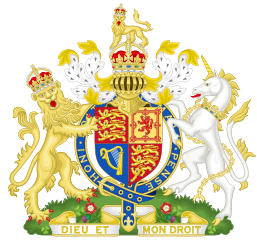All of the quoted posts were originally made in the Future of the Norwegian Monarchy thread:
It's sad that female members still lose their "royal status" after marrying commoners. What would happen to Princess IA if she chose to marry a commoner? Would the Royal House make him a Prince of Norway?
What do you mean by "what´s happening to Ingrid"?! Princess Elizabeth of Great Britain married a certain Philip Mountbatten, former Prince of Greece (before the marriage, he he had to give up his royal titles, so in 1947 he was a de facto commoner when he married Elizabeth and was once more created a Royal Highness by George VI the night before the wedding) and became Queen of one of the most prestigious thrones on this planet. Ragnhild of Norway married a commoner and remained a Princess, as well as her sister Astrid.
Princess Margaret married a photographer and remained HRH The Princess Margaret.
Both Beatrix of the Netherlands as well as Margrethe of Denmark married noble, but NO ROYAL, men (from a royal point of view Counts, Barons etc. are "commoners", too) and both became Queens Regnant. [...]
Princess Ragnhild was kicked out of the Royal House (meaning that yes, she remained a Princess, but she lost her appanage, tax exemption, HRH, and option of being a full-time working royal) for marrying a commoner in 1953 - six years after Princess Elizabeth of the UK married her de jure (not de facto, in my opinion) temporarily commoner husband in 1947.
The same happened to Princess Astrid (except that she was allowed to remain a working royal simply because there was no other female royal to take the role of first lady at the time) in 1961 - the year after Princess Margaret married undisputed commoner (though he was stepson of an earl) Antony Armstrong-Jones in 1960.
I think that demonstrates that the King of Norway did not feel that he was bound by the decisions of the King of Great Britain in regards to what happened to female royals who married commoners.
Likewise, King Frederik IX of Denmark (the king at the time of Margrethe II's marriage) did make a distinction between nobility and true commoners. During his reign, marriages of members of the Danish Royal House to nobles all received his official approval, but marriages to commoners did not, which meant that those who married commoners (Prince Oluf, Prince Flemming, Prince Ingolf and Prince Christian) lost their place in line to the crown and became Counts of Rosenborg, but those who married non-royal nobles did not.
Prince Philip initially took on a last name to work in the navy and he didn’t need to change his name, his uncle advised him to. In any case, Philip was not a commoner in anyway given his direct patrilineal legitimate descent from the Greek royal family which was a branch of the Danish royal house. Yes he gave up his titles because at that time the BRF was not going to change their last name and he was joining the BRF and he wasn’t going to rule Greece at any point. He might have temporarily gotten a last name and made a Prince of the U.K as well as Duke, but Philip was not necessarily in the same box as Claus, Daniel, or Antony Armstrong-Jones.
Philip didn't have to give up his titles, it was due to the snobbishness of the British establishment that he did. As far as they were concerned he was a foriegner and the fact that he was from two Royal Families that had been on the throne longer than the Windsors really irked them. He was treated really badly with Churchill keeping him from the inner workings of the Royal family, and the Queen Mother, not a very nice person, referreing to him as "the Greek."
Prince Philip worked in the British navy under the name "Philip, Prince of Greece".
https://www.independent.co.uk/arts-...ge-life-profile-of-prince-philip-1563268.html
If he legally lost his Greek and Danish royal status before obtaining British royal status then he was a commoner in one "way" (specifically, in the legal way) for that period.
But again, regardless of why Prince Philip of Greece renounced his birth titles, I do not believe it will influence the decisions about Princess Ingrid Alexandra's potential marriage, nearly 100 years later, in any way.



 The children of the second Duke of Albany were not validly married under British law, so their descendants were born illegitimate as far as the UK is concerned. Illegitimate children are barred from the British throne.
The children of the second Duke of Albany were not validly married under British law, so their descendants were born illegitimate as far as the UK is concerned. Illegitimate children are barred from the British throne.